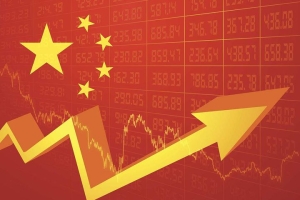There are several reasons China is continuing to run far ahead of other IPO market this year. On the one hand, it has not experienced dramatic bank failures like the U.S., while it is less affected by inflation and rising interest rates as both America and Europe. On the other, 2023 – despite ongoing geopolitical concerns – marks a return to normalcy of sorts for the world’s second largest economy. China has been steadily jettisoning its remaining pandemic restrictions, with the reestablishment of international flights to pre-pandemic levels perhaps representing the last mile in that process.
The uniquely high level of state support for strategic sectors in China also has buoyed the deal pipeline, as have reforms to accelerate the pace of new listings. As of early May, Chinese companies had raised US$19.5 billion in 80 deals, accounting for 53% of total IPO proceeds though US$4 billion less than a year earlier, according to Dealogic.
In contrast, the U.S. has raised just US$3.8 billion thus far in 2023 in 56 deals, a 40% plunge from the same period a year ago.
Bloomberg noted in an April report that the first batch of debuts under China’s newest IPO reform surged on the Shanghai and Shenzhen main boards. Electronics distributor Shenzhen CECport Technologies Co. led gains among the 10 companies trading for the first time under the new IPO process, gaining as much as 239% on April 9, while BOTH Engineering Technology Co. rose as much as 133%. The other eight firms that listed also jumped in early trading.
The new registration-based system for IPOs, which broadens rules adopted on tech boards to main exchanges, reduces regulatory involvement in new listings. The changes allow companies from traditional industries to benefit from the same system for high-growth or innovation firms, which would make it easier for fundraising.
Looking ahead, the large number of firms waiting for A-share IPOs should ensure that the deal pipeline remains vigorous in China. S&P Global Market Intelligence noted in a February report that about 1,000 companies are waiting for A-share IPOs. “The accelerated vetting process and the full implementation of the registration system could enable more companies to expedite their IPO processes,” Paul Go, EY's global IPO leader told S&P.

